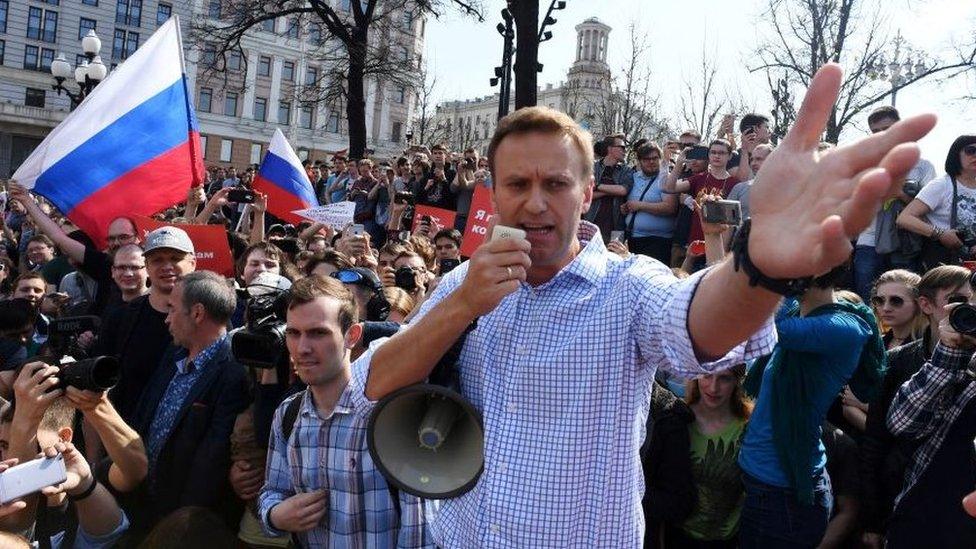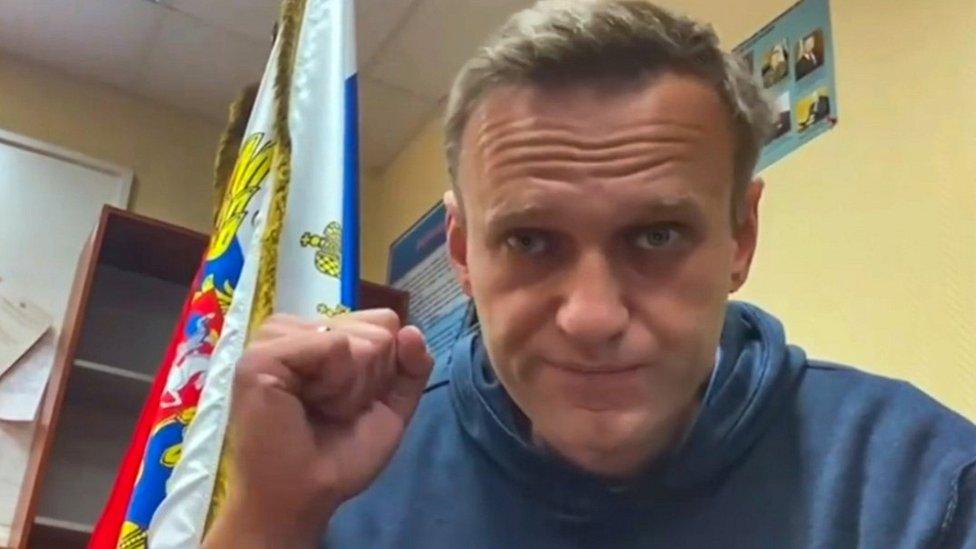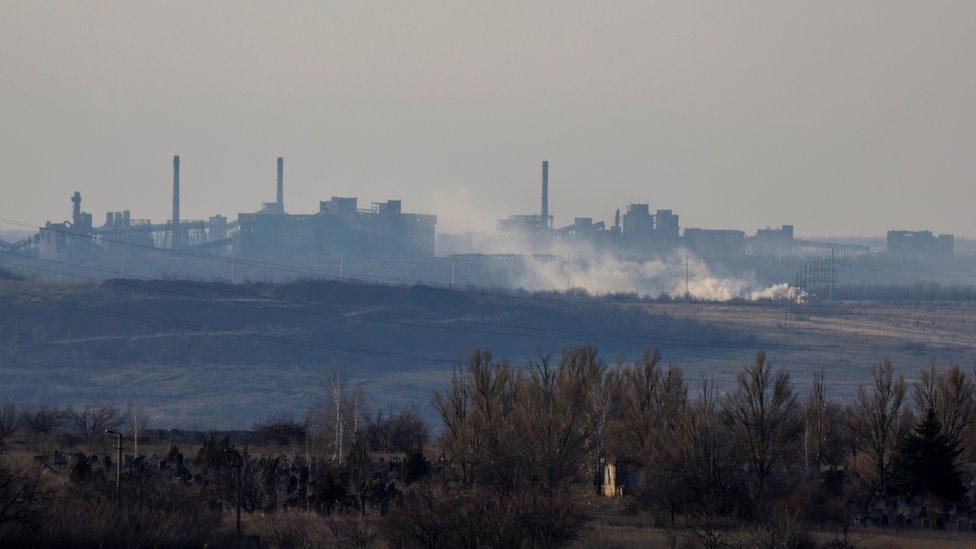President Biden says 'no doubt' Vladimir Putin to blame for Navalny's death
- Published
Watch: Putin is responsible - Biden responds to Navalny death reports
US President Joe Biden has blamed the Kremlin for Alexei Navalny's reported death, saying there can be "no doubt" Vladimir Putin was to blame.
Speaking from the White House, Mr Biden said that the US was looking at a "number of options" to punish Russia.
Russia's prison service said Navalny, 47, one of the country's most significant opposition figures, died in an Arctic Circle jail on Friday.
Several other US government figures and lawmakers have expressed their concern.
Navalny was serving a 19-year sentence on charges that have widely been condemned as politically motivated. For the past decade, Navalny and his Anti-Corruption Foundation have formed the main domestic opposition to Russian President Vladimir Putin.
In a statement, Russia's prison service said that Navalny "felt unwell" during a walk on Friday at the facility in the Yamalo-Nenets district and "almost immediately lost consciousness".
"The emergency doctors declared the prisoner dead," the statement added. "Cause of death is being established."
In a televised address from the White House early on Friday afternoon, Mr Biden said that while US officials are unsure of the exact circumstances behind Navalny's death, there is "no doubt" it was "the consequence of something that Putin and his thugs did".
"God bless Alexei Navalny," Mr Biden added. "His courage will not be forgotten."
When asked whether the US government was considering additional sanctions or other consequences to punish Russia if Navalny's death is confirmed, Mr Biden offered little in the way of details.
"We're looking at a whole number of options," he said. "That's all I'll say right now."
In his brief remarks, Mr Biden used Navalny's reported death to call on Republican lawmakers to do more to aid Ukraine during its war with Russia, warning them that "history is watching" - a common refrain from the US President.
"The failure to support Ukraine at this critical moment will never be forgotten," he said. "We have to help, now."
Speaking earlier in the day at the Munich security conference, Mr Biden's vice-president, Kamala Harris, said that - if confirmed - Navalny's death would be a "further sign" of the "brutality" of President Putin.
Similar comments have come from other US officials and from politicians on both sides of the political spectrum.
Secretary of State Anthony Blinken - who was also at the conference alongside 44 US lawmakers - said that the US will "be talking to many other countries" about Navalny, "especially if these reports bear out to be true".
According to the State Department, Mr Blinken met Navalny's wife Yulia on the sidelines of the conference to express his condolences "if the reports....are true".
Ben Cardin, the chair of the powerful Senate Foreign Relations Committee, issued a statement in which he said Navalny's reported death "is not just a tragedy for the Russian people, but a profound loss felt across the international community".
"The need for the international community to stand in solidarity with those who fight for democracy and human rights could not be more urgent," Mr Cardin added. "As we mourn this loss, we cannot shrink from our collective responsibility to hold accountable those who seek to silence dissent through violence and repression."
House Speaker Mike Johnson called Mr Putin a "vicious dictator" who is "likely directly responsible" for Navalny's reported death.
"If confirmed, this action is emblematic of Putin's global pattern of silencing critics and eliminating opponents out of fear of dissent," he said, calling for "united opposition" against Russia.
Former Vice-President Mike Pence, a long-time Putin critic, said that there was "no room in the Republican Party for apologists for Putin".
Navalny was last seen earlier this week, when he appeared in court hearing via video link. During the hearing, he appeared healthy and was laughing.
"I don't want to hear any condolences," his mother was quoted as saying on Friday. "We saw him in prison on 12th [February], in a meeting. He was alive, healthy and happy."

Alexei Navalny: More coverage
OBITUARY: Russia's most vociferous Putin critic
BEHIND BARS: Life in notorious 'Polar Wolf' penal colony
IN HIS OWN WORDS: Navalny's dark humour during dark times
SARAH RAINSFORD: Navalny was often asked: 'Do you fear for your life?'

Related topics
- Published16 February 2024

- Published16 February 2024

- Published16 February 2024
